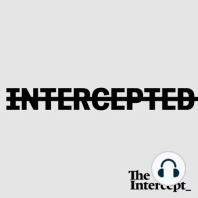3 min listen
Understanding the History of Black Rebellion
FromIntercepted
ratings:
Length:
41 minutes
Released:
May 26, 2021
Format:
Podcast episode
Description
In the year since the murder of George Floyd in Minneapolis and the mass mobilization of protest that followed — the largest collective gesture against police violence in this country’s history — there’s been a constant and energized call to defund or outright abolish policing as we know it in the U.S. This week on Intercepted: The U.S. has been grappling with this same cycle of violence for more than nearly a century: A Black person is killed by police, and protests follow. In 1968, the U.S. tried to find out why this kept happening in cities and small towns across the country with an unprecedented frequency. President Lyndon B. Johnson assembled the Kerner Commission to study the extraordinary violence and destruction of uprisings in cities like Newark, New Jersey, and Detroit the year prior. Their findings should surprise no one. Systemic and institutionalized racism was to blame. Structural white supremacy maintained two societies: “One Black, one white. Separate and unequal.”Historian Elizabeth Hinton, author of “America on Fire: The Untold History of Police Violence and Black Rebellion since the 1960s,” argues that protestors were not rioters but rather political participants in rebellion against their own poverty, inequality, and constant surveillance and brutality by the police.
See acast.com/privacy for privacy and opt-out information.
See acast.com/privacy for privacy and opt-out information.
Released:
May 26, 2021
Format:
Podcast episode
Titles in the series (100)
Introducing Intercepted with Jeremy Scahill: A preview of Intercepted, a new podcast coming January 25. by Intercepted
